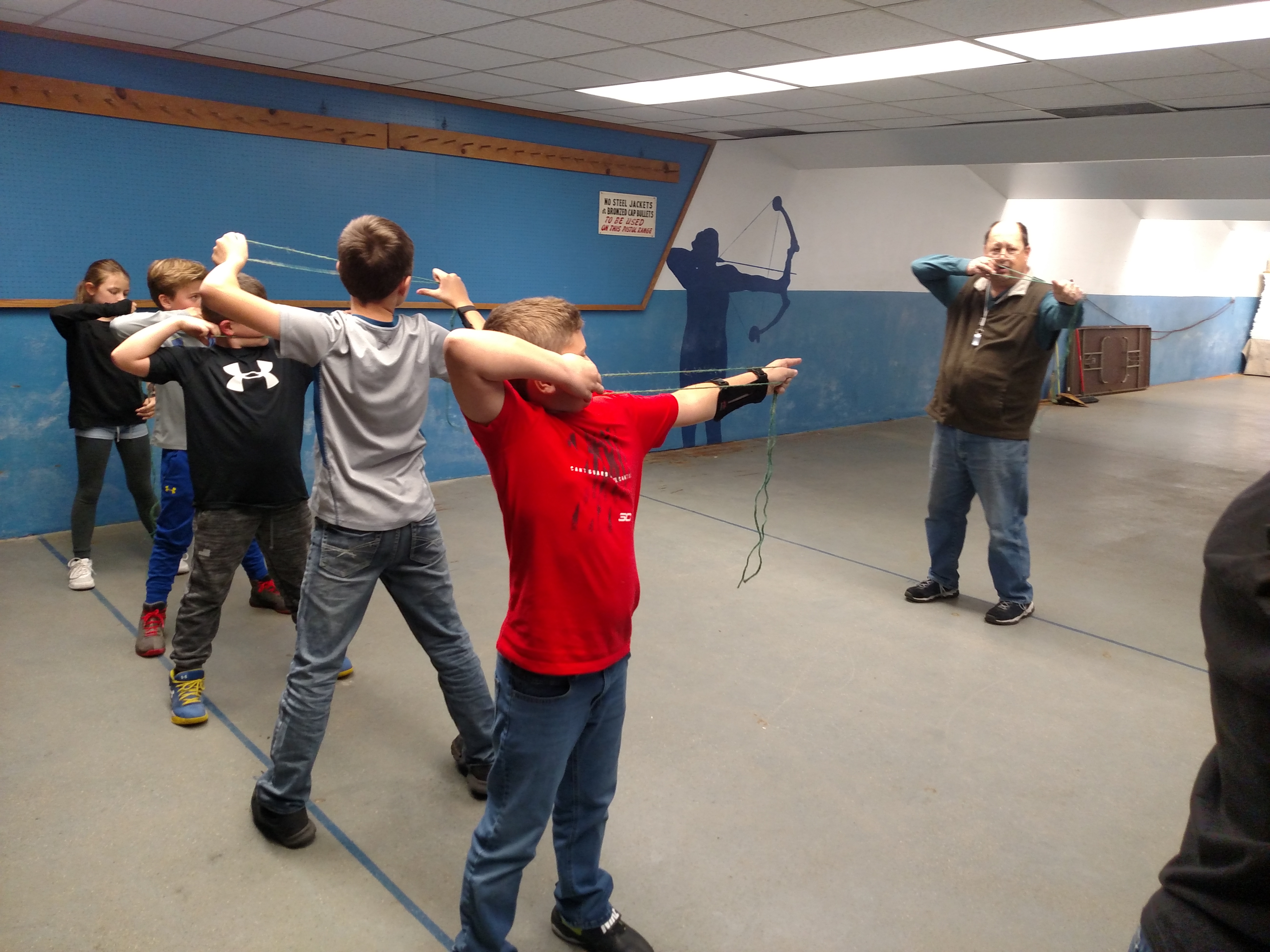Delta County 4-H shooting sports instructor keeps youth on target
When Erick Kestila first attended the 4-H After School Archery Program, he had no idea he would lead the program one day. But he also had no idea how the program would affect his daughter’s life, inspiring him to ensure the opportunity would continue.

When Erick Kestila first attended the 4-H After School Archery Program with his elementary school-aged daughter, he had no idea he would find himself leading the program one day. But he also had no idea how the program would affect his daughter’s life, inspiring him to ensure the opportunity would continue to be available for other Delta County young people.
“My daughter was a shy kid and didn’t want to do anything,” explained Kestila. “She didn’t want to participate in anything in school, but we got her to try shooting archery.”
The Delta County 4-H After School Archery Program provided the perfect low-pressure venue for young Mariah Kestila to try out the sport. The six-week SPIN (special interest) club met once a week at the local civic center in Escanaba and offered young people an introduction to archery, along with several weeks of shooting experience to enhance their skill.
“We wanted to provide an afterschool activity for kids that were not into sports or academics,” said Randall Allen-Napeahi, cofounder of the 4-H After School Archery Program. He and Michigan State University Extension 4-H educator Dave Radloff started the program in 2007. Erick is grateful that the two had the foresight to create such a program, which his daughter quickly took to and enjoyed.
“That first year, she did the afterschool program and later the National Archery in Schools Program,” said Kestila. “She ended up taking first place in the state tournament.”
With positive results for her hard work, Mariah soon grew something more than skill: confidence in herself.
“Once she found out she was good at something, that translated into her having the confidence to do more,” said Kestila. “Then she got more involved in her school activities, her grades got better. She started having more friends because she started participating in things. It really helped her develop.”
To help provide Mariah with additional opportunities to practice her sport, Erick became a certified 4-H shooting sports instructor with MSU Extension. This allowed Mariah to practice at ranges where a certified instructor was required for safety purposes. Once certified, Erick and his wife, also a certified instructor, quickly began volunteering with the 4-H program, helping to provide archery experiences for Mariah and her peers.

“I helped out with the 4-H After School Archery Program the year after I became certified,” said Kestila. “I enjoyed seeing kids do something they hadn’t done before and then excel at it.”
Erick continued to help with the program for several years, and when Allen-Napeahi needed to step away from the club nearly a decade later, Erick stepped up to become the lead volunteer.
“Erick is a wonderful asset,” said Allen-Napeahi. “He had a devoted interest because of his daughter but he stayed with it long after she graduated. He is a top-quality instructor and volunteer.”
When asked why he remains committed to the program, Erick commented on the benefits that the 4-H archery experience provides for young people in Delta County.
“Kids that get active in the afterschool program, it translates to other life skills,” explained Kestila. “It helps them with their concentration skills and then that helps them with school because they need to be able to concentrate in school and to do things like homework.”
Beyond school, Kestila sees other positive results for 4-H’ers involved in the sport.
“With archery, we set up goals for them to complete each week and once they do that, they see the difference from Day 1, when they started, and how well they’ve progressed. You relate that back to life – when you learn something it’s going to take a while to become proficient at it. It helps with their ability to set a goal and achieve it using incremental steps.”
However, the rewards of volunteering are not exclusive to the young people.
“I get a lot out of it, seeing the kids progress. Seeing them – the smiles on their faces and seeing that they are actually able to learn the sport and learn an activity. It gives the kids self-esteem and makes them feel good about themselves. Anything you can do as an adult to help kids feel good about themselves is key.”
Kestila hopes others will join him in volunteering through 4-H to grow the next generation of true leaders.

“There’s not a lot of things out there today telling kids they’re good at something. 4-H is a program out there for different kids to do a lot of different things that will show them that they can do something and they can be good at it and it will make them feel good. Put both feet in and just go for it!”
To learn more about the 4-H shooting sports program or becoming a 4-H volunteer, visit the Michigan 4-H website.



 Print
Print Email
Email